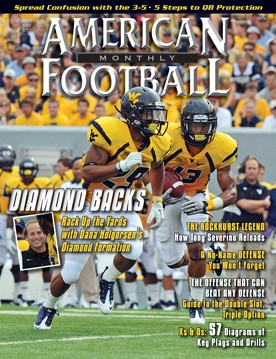Article CategoriesAFM Magazine
|
Coach to Coach – Summer Sessionby: Bryon HamiltonHead Coach, Foothill High School, Palo Cedro (CA) © More from this issue Using the summer months to organize and articulate your coaching philosophies and methods. Being a head football coach is a job that requires a multitude of skills. The coach that is successful over a long period of time has learned to master the art of the “tions” – motivation, delegation, innovation, articulation, dedication – all the while maintaining the most important element – passion. In order to become efficient in all of these areas, a head coach must know and be able to articulate his vision, philosophies and methods with those who work with him and for those who play for him. One of the most important and useful tools that I have implemented as a head coach is the writing of my coaching handbook. My current handbook has taken me years to construct. Not just years of writing and revising, but years ....The full article can only be seen by subscribers.
|
|
|||||||
| HOME |
MAGAZINE |
SUBSCRIBE | ONLINE COLUMNISTS | COACHING VIDEOS |
Copyright 2026, AmericanFootballMonthly.com
All Rights Reserved





